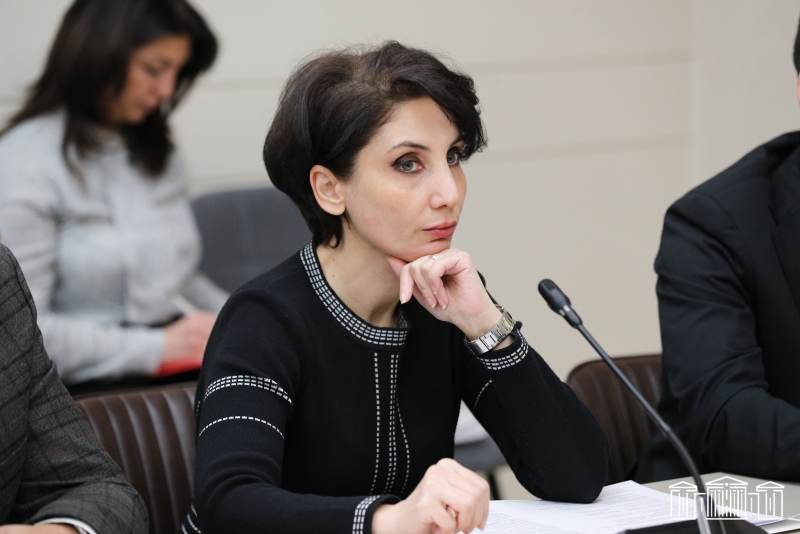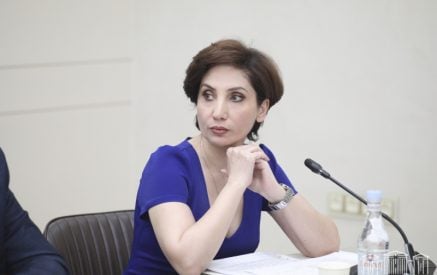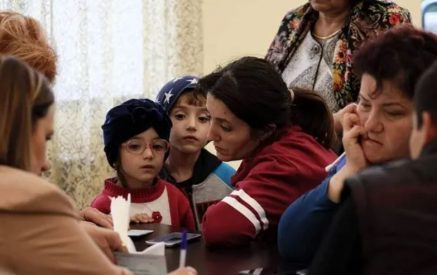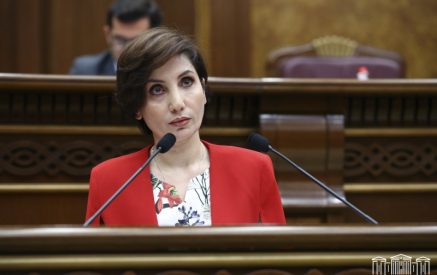According to the RA Deputy Minister of Justice Armenuhi Harutyunyan, 17 honorary titles are defined by the current legislation, which are mostly outdated. The Executive proposes to review the scope of honorary titles to be awarded. According to the Deputy Minister, these titles have a negative impact on healthy competition, meritorious progress, and morale-psychological atmosphere in individual professional fields.
At the sitting of the NA Standing Committee on State and Legal Affairs, the legislative package on State Awards and Honorary Titles and the related laws were debated.
According to Armenuhi Harutyunyan, the experience of advanced countries also shows that there is no institute of honorary titles, and the encouragement of certain specialists is based on measurable and concrete results. According to her assessment, it is more appropriate to encourage individuals and to evaluate their work on the basis that they participate in the field of award ceremonies and present the results of their work. “That is what is appreciated, not a certain title is given to them, which they carry until the end of their life,” the Deputy Minister said.
It was noted that the package was elaborated with the participation of all the competent bodies in the field. In response to the deputy Artsvik Minasyan’s questions, the Deputy Minister informed that the titles previously given will continue to function. It was mentioned that only the ‘meritorious collective’ title remained, as it is the only one that is not given to an individual, but to a collective.
Read also
The deputy Arpine Davoyan in her related report highlighted the fact that the initiative focused on team activities, not individual ones. According to her, talented and popular people will always be appreciated, regardless of their titles. She proposed her colleagues to vote for it and continue the process of improving the law.
The deputy Artsvik Minasyan pointed out that the draft is unacceptable in this form. He opined that the society does not value talents for titles, but the society also follows which type the state encourages and for what. Speaking about individual activities, the MP added. “Should Mher Mkrtchyan’s individual talent have been connected with any group? That person’s talent is individual.” To his conviction, one can talk about the group talent in case of ensembles.
The Committee Chair Vladimir Vardanyan, in response to the deputies’ concerns, informed that there were debates regarding the issue with the relevant Committees of the National Assembly, Ministries, the Staffs of the Government and the President of the Republic. According to him, with this solution, collectives will have the opportunity to receive appropriate titles, and at the same time, it will be possible to avoid subjectivism and unhealthy atmosphere, which are formed in this or that ensemble, related to giving or not giving a title to this or that creator. Opposing some viewpoints, the Committee Chair said: “Galya Novents carried out her creative work during the years of the Soviet Union, but she received the title of Honored Artist in 2003, and the title of People’s Artist – in 2007. During the period of Soviet Armenia, why was her contribution not appreciated? Subjectivism is considerable here.” He added that awarding titles is the development and continuation of the concept of the Soviet system. According to the Committee Chair, a national system should be formed, which will be acceptable to everyone.
In her final speech, Armenuhi Harutyunyan opined that the creator’s popularity, public recognition and public perception cannot be checked, measured, even more so validated or rejected by the state or any competent state body.
As a result of voting, the legislative package was endorsed by the Committee.
National Assembly of the Republic of Armenia

























































